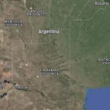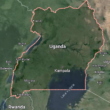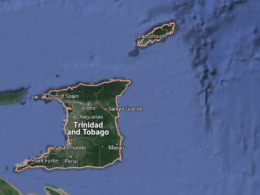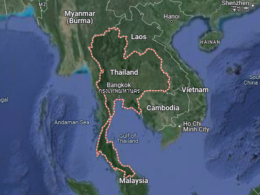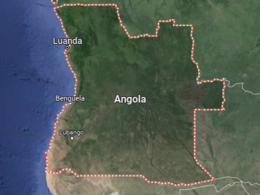Norway is home to the world’s longest road tunnel, the Laerdal Tunnel, stretching over 15 miles.
The country has a tradition called “slow TV,” featuring hours of uninterrupted programming like train journeys or knitting.
Norway has a law called “allemannsretten,” giving everyone the right to access and roam freely in nature.
The country has a unique phenomenon called “midnight sun,” where the sun does not set for several weeks during summer in northern regions.
Norway has over 1,000 fjords, including the famous Geirangerfjord and Nærøyfjord, both UNESCO World Heritage Sites.
The Nobel Peace Prize ceremony takes place annually in Oslo, Norway.
The country has a strong tradition of “dugnad,” community volunteer work, where neighbors come together to help each other.
Norway has one of the highest standards of living in the world, with a strong welfare state.
The Norwegian language has two official written forms: Bokmål and Nynorsk, reflecting different dialects and historical influences.
Norway has a monarchy, and King Harald V has been reigning since 1991.
The country is known for its Viking heritage, with historical sites and museums dedicated to Norse history.
Norway is home to the Sami people, indigenous to northern Scandinavia, with their own language and culture.
The city of Tromsø is known as the “Gateway to the Arctic” and is a popular spot for viewing the Northern Lights.
Norway has a strong tradition of winter sports, including skiing, snowboarding, and biathlon.
The country has a unique architectural tradition of “stave churches,” medieval wooden churches with intricate carvings.
Norway is one of the largest exporters of seafood in the world, particularly salmon and cod.
The Norwegian coastline is one of the longest in the world, stretching over 15,000 miles when including fjords and islands.
The country has a tradition of celebrating “syttende mai” (Constitution Day) with parades, flags, and traditional costumes.
Norway has a high rate of electric vehicle adoption, with incentives for zero-emission cars.
The country has a strong tradition of literature, with playwright Henrik Ibsen and author Knut Hamsun among its notable figures.
Norway has a significant oil and gas industry, contributing to its wealth through the Norwegian Petroleum Fund.
The country has a rich tradition of folk music, including the Hardanger fiddle and traditional dance tunes.
Norwegian cuisine includes specialties like “lutefisk” (dried cod soaked in lye) and “rømmegrøt” (sour cream porridge).
The country has a strong commitment to environmental sustainability, with extensive renewable energy projects.
Norway has some of the oldest skiing artifacts in the world, dating back to 4,000 BC.
The country has a tradition of “hygge,” a concept of coziness and contentment that is central to Norwegian culture.
Norway has a high standard of healthcare, with universal access to medical services.
The country is known for its deep-sea fishing industry, particularly in the Barents Sea.
Norway has a unique tradition of “sauna culture,” with over 1.5 million private saunas across the country.
The country has a strong tradition of outdoor activities, including hiking, fishing, and berry picking.
Norway is home to the world’s largest sovereign wealth fund, the Government Pension Fund Global.
The country has a strong tradition of woodworking and craftsmanship, seen in traditional boatbuilding and architecture.
Norway has a rich tradition of storytelling, with myths and legends about trolls, giants, and Norse gods.
The country has a high level of gender equality, with policies promoting women’s participation in politics and the workforce.
Norway has a strong tradition of jazz music, with the Oslo Jazz Festival being a prominent event.
The country has a unique architectural style called “dragon style,” influenced by Viking art and motifs.
Norwegian winters are marked by the phenomenon of “polar night,” where parts of the country experience continuous darkness.
The country has a tradition of “bunad,” traditional folk costumes worn on special occasions and holidays.
Norway has a diverse wildlife, including Arctic foxes, reindeer, and sea eagles.
The country has a rich tradition of art, with painters like Edvard Munch and Nikolai Astrup gaining international acclaim.
Norway has a strong tradition of education, with free higher education offered to all citizens.
The country has a tradition of “koselig,” which translates to coziness and is akin to the Danish concept of hygge.
Norway has a tradition of celebrating “julebord,” Christmas parties featuring traditional foods and drinks.
The country has a rich tradition of metalwork and jewelry-making, seen in intricate Viking-age artifacts.
Norway has a tradition of “påskekrim,” crime fiction novels and TV series enjoyed during Easter.
The country has a strong tradition of folk art, including rosemaling (decorative painting) and woodcarving.
Norway has a rich tradition of folk dance, with regional variations and costumes.
The country has a strong maritime heritage, with fishing and shipbuilding playing significant roles in its economy.
Norway is known for its impressive waterfalls, including the Seven Sisters and the Vøringsfossen.
The country has a strong tradition of environmental conservation, with many national parks and nature reserves.
Norway has a unique tradition of “bunad,” traditional folk costumes worn on special occasions and holidays.
Norway has a diverse wildlife, including Arctic foxes, reindeer, and sea eagles.
The country has a rich tradition of art, with painters like Edvard Munch and Nikolai Astrup gaining international acclaim.
Norway has a strong tradition of education, with free higher education offered to all citizens.
The country has a tradition of “koselig,” which translates to coziness and is akin to the Danish concept of hygge.
Norway has a tradition of celebrating “julebord,” Christmas parties featuring traditional foods and drinks.
The country has a rich tradition of metalwork and jewelry-making, seen in intricate Viking-age artifacts.
Norway has a tradition of “påskekrim,” crime fiction novels and TV series enjoyed during Easter.
The country has a strong tradition of folk art, including rosemaling (decorative painting) and woodcarving.
Norway has a rich tradition of folk dance, with regional variations and costumes.
The country has a strong maritime heritage, with fishing and shipbuilding playing significant roles in its economy.
Norway is known for its impressive waterfalls, including the Seven Sisters and the Vøringsfossen.
The country has a strong tradition of environmental conservation, with many national parks and nature reserves.
**Please note that this post may contain affiliate links. When booking through one of our links, we earn a small kickback at no extra cost to you and it’s a big help to keep the site up and running.



